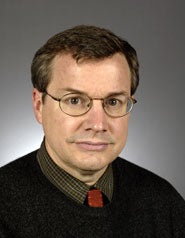For the past five and a half years, Elena Kagan ’86 used this space to update you on exciting happenings at Harvard Law School, including the expansion of the faculty, the revision of our curriculum, the growth of our clinical programs, and an important emphasis on public service in the lives of our students and our graduates. As I’m sure you know, however, Elena left us in March to become the nation’s solicitor general, an assignment for which she is superbly qualified and deserves our wholehearted support and congratulations.
Since then, I have had the privilege of stepping in as the acting dean, and I will serve in that role until Harvard President Drew Faust appoints a new dean (expected sometime this summer).
For much of the past several months, the law school, like the rest of the wider university of which we are a part, has been coming to terms with the impact of the economic climate—specifically, the effects of a sharp drop in the value of our endowments.
In recent years, HLS has depended on distributions from the endowment for about 40 percent of its annual operating budget. Our planning—when the endowment was growing at an impressive rate—was based on projections of continued robust growth. We were able to expand the school and its operations greatly, and we expected that we would be able to continue investing heavily in strategic areas.
But with the fall in the markets, we’ve had to absorb a new reality. In the coming fiscal year, we will receive about 8 percent less from the endowment than we received this past year, and the projections are that we will see an even larger reduction the year after that.
This presents us with new challenges. The fundamental question we face is: How can we best accomplish the core mission of the school and continue to invest wisely in certain areas, with less money than we’ve been spending?
With that question foremost in mind, I have worked closely with many members of the law school community, taking a hard look at the entire institution. There are tough choices to be made, and we have begun to make them. But I firmly believe we will emerge from the economic turbulence on strong footing, without compromising the quality of the education and opportunities we provide to our students.
In that regard, I am happy to report that new and exciting initiatives are still under way, and the momentum of Elena Kagan’s deanship continues. We are making new appointments—for example, Jesse Fried ’92, a renowned scholar of corporate governance, will be joining us from Berkeley in the fall, and others will follow—and we will be launching our new and innovative course on complex problem-solving as part of our first-year curricular reforms.
We are especially committed to maintaining the availability of financial aid, and I urge you—the alumni who have supported the school so generously—to consider helping again now, when our students face a world of daunting financial challenges the likes of which haven’t been seen in decades.
The global economic crisis is, at its heart, about failures of accountability—markets and institutions that were given too much room to roam without enough oversight. I’m proud that the scholars, students and alumni of Harvard Law School have been making critically important contributions to the building of new mechanisms of accountability. Some of their stories await you in the pages of this magazine.
I am fully confident that their efforts will succeed. And I am equally confident that the Harvard Law School community, including our loyal and dedicated alumni, will work together to meet the challenges ahead.
Best wishes,
Acting Dean Howell Jackson ’82

